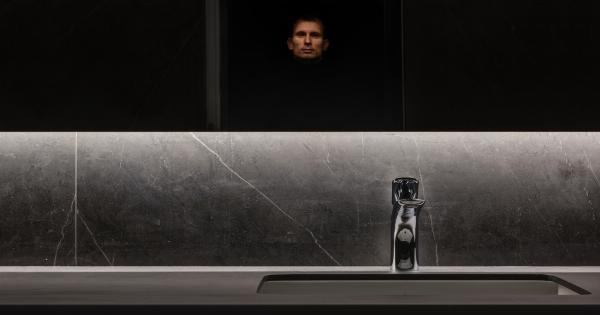Nocturia, also known as nighttime urination, is a common condition that affects many people regardless of their age and gender.
It is characterized by the need to urinate frequently at night, interrupting one’s sleep patterns and causing significant discomfort and inconvenience. In this article, we will explore the causes of nocturia, its symptoms and treatment options to help you understand this condition better.
What Causes Nocturia?
Nocturia can be a result of various underlying medical conditions such as urinary tract infections, prostate problems, bladder problems, kidney diseases, and neurological disorders.
In addition, nocturia can also be caused by lifestyle factors such as excessive fluid intake, alcohol consumption, caffeine and tobacco use, certain medications, and aging. The following are the common causes of nocturia:.
Urinary Tract Infections
Urinary tract infections (UTIs) occur when bacteria invade the urinary system, causing inflammation and irritation. UTIs are more common in women than in men. Symptoms of UTI include frequent urination, painful urination, and a strong urge to urinate.
Prostate Problems
Prostate problems, such as benign prostatic hyperplasia (BPH) and prostate cancer, can cause urinary problems, including nocturia.
The prostate gland is located near the urethra, where it can put pressure on the bladder, causing the need to urinate frequently, particularly at night.
Bladder Problems
Underactive bladder and overactive bladder are two common bladder problems that can cause nocturia. An overactive bladder causes a sudden urge to urinate frequently, while an underactive bladder makes it difficult to empty the bladder completely.
In both cases, the result is nocturia.
Kidney Diseases
Kidney diseases, such as chronic kidney disease and acute kidney injury, can cause the kidneys to produce more urine than normal, leading to nocturia. In addition, some medications used to treat kidney disease can also cause nocturia.
Neurological Disorders
Neurological disorders, such as Parkinson’s disease, multiple sclerosis, and spinal cord injuries, can interfere with nerve signals that control bladder function, leading to nocturia as a result.
Lifestyle Factors
Certain lifestyle factors can also cause nocturia, including excessive fluid intake, alcohol consumption, caffeine and tobacco use, certain medications, and aging.
Excessive fluid intake before bed can result in nocturia, while alcohol and caffeine stimulate the bladder, causing the need to urinate frequently. Aging also affects bladder function, leading to nocturia in older adults.
What Are the Symptoms of Nocturia?
The primary symptom of nocturia is the need to urinate frequently at night. This can disrupt one’s sleep pattern, leading to tiredness, stress, and even depression. Other symptoms of nocturia include the following:.
- Painful urination
- Blood in the urine
- Increased frequency during the day
- Incontinence
- Urgency
How Is Nocturia Diagnosed?
If you experience the symptoms of nocturia frequently, it is advisable to seek medical attention. A doctor will take your medical history and perform a physical examination to rule out any underlying medical conditions that may be causing the nocturia.
The doctor may also carry out diagnostic tests such as urine analysis, blood tests, a bladder scan, or urodynamic testing to get a better understanding of your bladder function.
How Is Nocturia Treated?
The treatment of nocturia depends on the underlying cause of the condition. Treatment options may include the following:.
Medication
Depending on the cause of nocturia, medication may be prescribed to treat the underlying condition causing the frequent urination at night.
For example, bladder relaxants may be prescribed to relieve overactive bladder, while antibiotics can be prescribed to treat urinary tract infections.
Behavioral Changes
Behavioral changes such as limiting fluid intake before bed, reducing alcohol, caffeine, and tobacco consumption, and going to the bathroom regularly in a timed interval can help reduce the frequency of nocturia.
Surgical Intervention
In some cases, surgical intervention may be necessary to treat the underlying cause of nocturia. For example, surgery may be needed to remove a tumor that is putting pressure on the bladder.
Devices
Devices such as a catheter may be used in severe cases of nocturia where the patient is unable to empty their bladder on their own.
Conclusion
Nocturia can be a challenging condition to live with. However, prompt diagnosis and treatment can go a long way in managing the symptoms of the condition.
If you experience frequent nighttime urination, seek medical attention right away to get the right diagnosis and treatment plan.





























